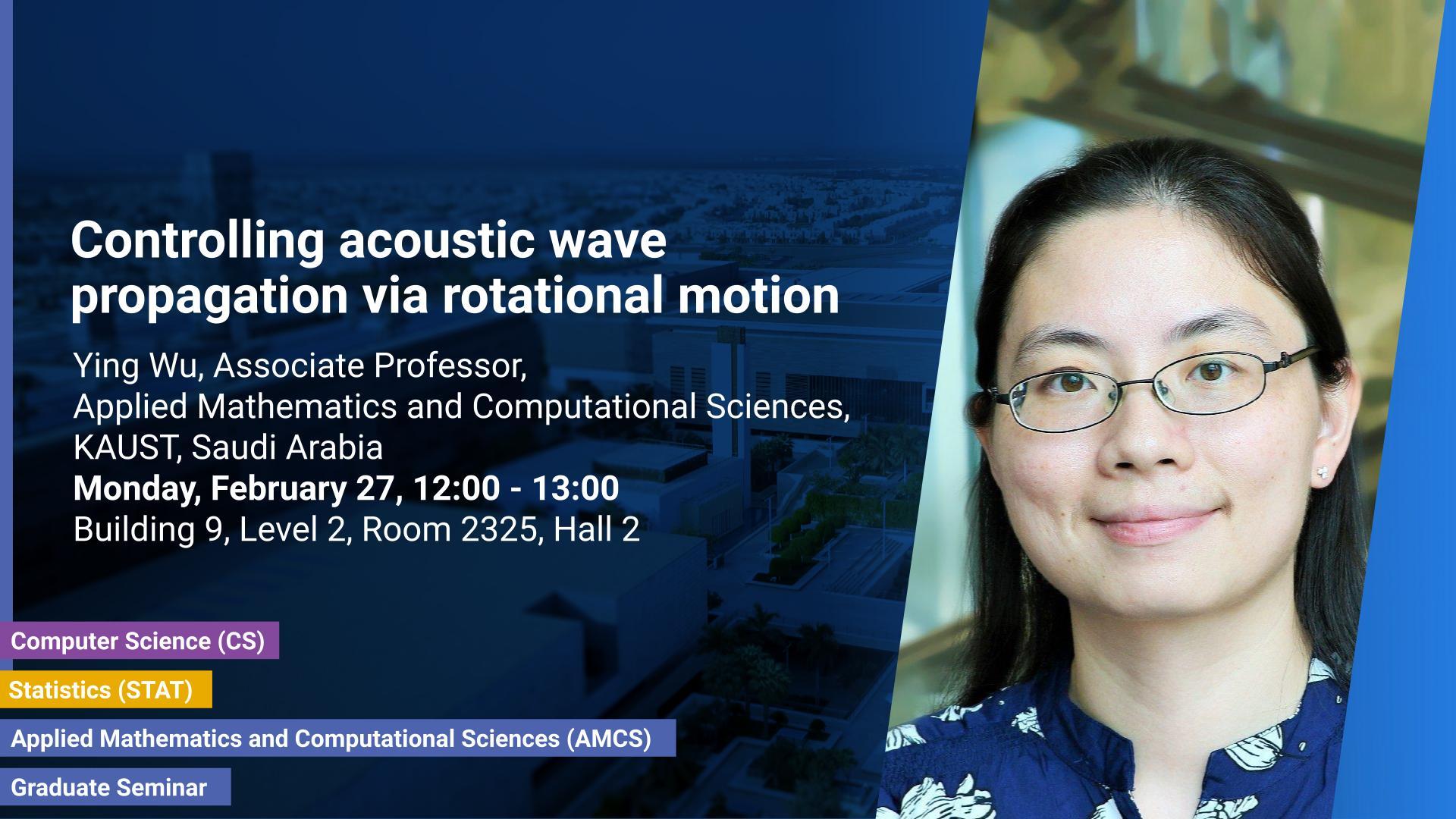Abstract
Propagation of acoustic waves in time-varying and/or moving media has attracted a lot of attentions and is expected to lead to many intriguing applications. In this talk, I will discuss our recent work on acoustic wave propagation in spinning media (air or water).
I will start with a review of the theoretical foundation built upon the Mie scattering framework, in which both the wave equation and the boundary conditions will be specifically discussed. The study is limited in the linear regime and exhibit the peculiar scattering features. Then I will show three examples. In the first example, we will develop a generalized scattering cancellation theory (SCT) to cloak the spinning objects and hide them from static observers. The technique is based on rotating shells with different angular velocity. Our work extends the realm of SCT and brings it one step closer to its practical realization that involves moving objects. In the second example, we will show that a spinning cylindrical column of fluid in the same static fluid environment possesses intrinsic spin angular momentum. We will further study the torque and force it experiences in evanescent acoustic fields and show that the resulting discontinuity can scatter sound in unusual ways, e.g., a negative radiation force, although it has no imaginary part (associated to intrinsic absorption) in its parameters. In the third example, acoustic analogue of optical fiber based on rotation will be discussed.
Brief Biography
Dr. Ying Wu joined KAUST CEMSE division in October 2010 as an assistant professor and was promoted to associate professor in 2017. She received her BSc from Nanjing University in 2002 and PhD from the Hong Kong University of Science and Technology (HKUST) in 2008. Prior to KAUST, she worked as a post-doctoral fellow at HKUST. Her research focuses on wave propagation in complex media.
